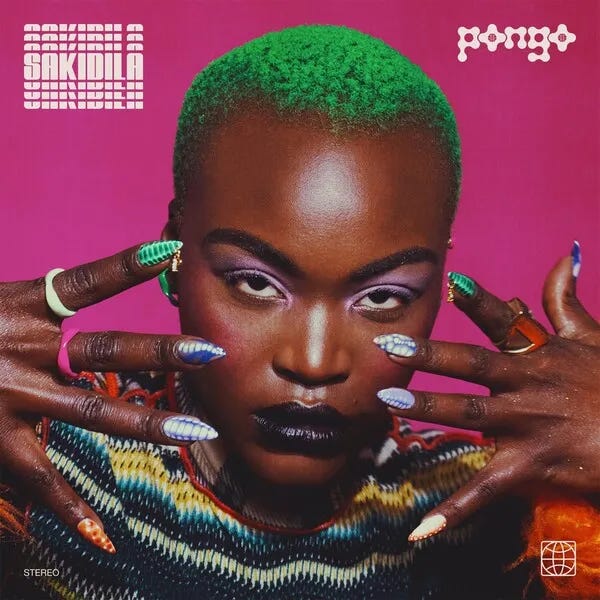EVERY GENRE PROJECT - March 25 - Kuduro
Genre of the Day - Kuduro
Album of the Day - Sakidila by Pongo (2022)
March 25, 2024
As I mentioned in my March 10th article on highlife, African dance music is having a worldwide moment in the past couple years thanks to afrobeats coming to the forefront of pop music more than ever with Rema and Burna Boy and recently amapiano with Tyla’s irresistible “Water.” Today we zero in on the southwestern corner of the continent in the nation of Angola. Dance music is often a reclamation of independence and autonomy amidst an oppressive environment: hence why house and techno emerged in Black and queer American communities. Today’s genre shows that it can equally be a mechanism of reclamation from colonialism.
Less than five decades ago—astoundingly—Angola was still toiling under the rule of dictatorial Portugal, a country it dwarfs in size. Particularly exploited for the slave trade, being the largest source of slaves for the Americas throughout the 1800s, Angola was under Portuguese rule from the 1500s until 1974. Most members of the government and bureaucracy in Angola even in the end stages of colonization were Portuguese nationals. Given how recent this history of exploitation was and how much it lingers in the collective memory of the country, it reserves the right to celebrate to its heart’s content. This is especially true in light of the ongoing recovery from the excruciatingly bloody civil war that broke out after independence. Dance music is one chapter in celebrating long-awaited sovereignty and peace.
As electronic music tools like samplers became more widely available worldwide, in Angola this development coincided with European and American music flowing into the market in the late ‘80s. A natural musical fusion took place, with producers throwing local percussion styles on top of these electronic beats. Kuduro is insistent, rapid dance music: the word comes from a portmanteau of the Portuguese words for hard buttocks, indicating its hard-hitting nature. The magic of digital pirating allowed tools like FL Studio to become widespread among Angolan producers and expanded kuduro’s sonic palette and people’s ability to record at home. With a wide variety of influences, from traditional Angolan genres like semba and kilapanga to worldwide dance genres like dancehall, Afro-house, bass music, and techno, kuduro is a unique mesh. If you feel so inclined, there’s even a documentary about the genre called “I Love Kuduro.” The performances look incredible. As much as dance music is an escape, it can be vital for a whole nation’s joy and pride.
In terms of albums, today we’re visited by a colorful rising star by the name of Pongo. Listening to this album, the versatility between being an emcee and a cooing singer reminded me of obvious parallels in Lauryn Hill or perhaps the virtuosic Rosalía with her oscillations between hard-hitting raps and almost schoolyard-like chanting such as on the bust-the-doors-down opener “Hey Linda.” She utilizes a wide range of sounds here, reflecting kuduro’s voraciously inspired nature: there’s the organic instrumentation of “Kuzola” versus the hard-hitting log drum, horns, and studio sleek synth bass of “So Amor.” Like its title, “Vida” possesses a sense of vitality with a sublime, sweet vocal performance built around a sunny guitar riff. “Amaduro” has a darker, more booding sound that extends her prowess as an MC, and “Pica” has touches that feel reminiscent of reggaeton. This wild ride of an album reflects kuduro’s ability to both stake Angola’s place in a global dance music conversation and mirror global trends while reflecting back its own sense of optimism and take-charge potency as a decolonial statement. Armed with that spirit, stars like Pongo and an M.I.A. cosign (unfortunate that she focuses more on random anti-vax tweets now more than cool music exposure), kuduro is only on the come up.




